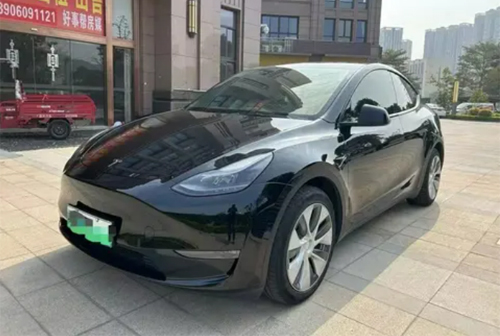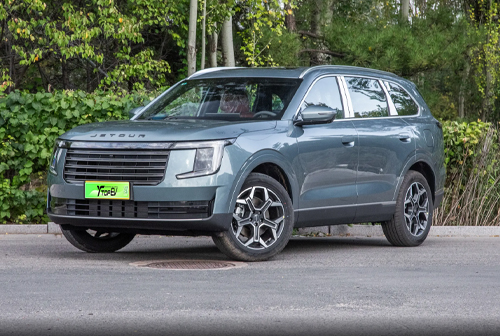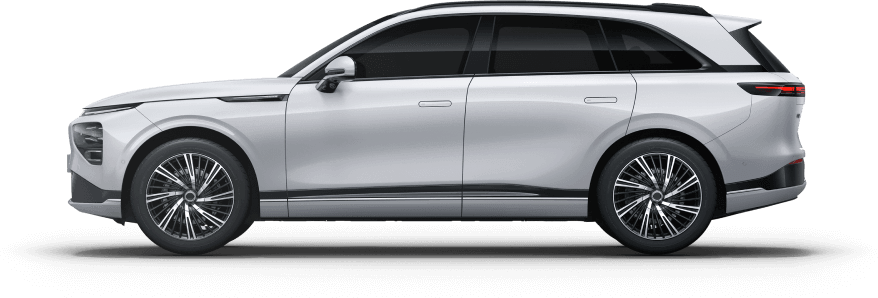How many miles make a used car reliable? This article will analyze the topic from multiple angles to help you make a smart, confident choice when purchasing a used vehicle.
1. What Mileage Means and Why It Matters
1. What is mileage?
Mileage refers to the total distance a car has traveled. It’s a key indicator of how frequently a vehicle has been used and how much wear its components have experienced. Generally, the higher the mileage, the greater the wear on parts.
2. Why is mileage important when buying a used car?
Mileage is an essential factor in estimating a car’s lifespan and future maintenance costs. For instance, a vehicle that has driven 100,000 km will likely have more wear on the engine, transmission, and suspension than one that has only covered 30,000 km.
3. The relationship between mileage and price
Used car prices typically decrease as mileage increases. However, both extremely low and very high mileage can indicate potential risks.

2. What Range of Mileage Is Considered “Reliable”?
1. Normal annual mileage
For most private vehicles, normal yearly mileage ranges between 10,000 and 20,000 km. If a car has been in use for five years and its mileage falls between 50,000 and 100,000 km, it’s generally considered reasonable.
2. Is “low mileage” always reliable?
Not necessarily. Low mileage might look attractive, but it can hide certain issues such as:
-
Long periods of inactivity: Extended idleness can cause tire aging, battery failure, and oil deterioration.
-
Mileage rollback: Some dishonest sellers may tamper with odometers to make the car appear newer, so it’s essential to verify authenticity.
3. Potential value in high-mileage cars
High mileage doesn’t always mean trouble. If the vehicle has been well maintained — with regular oil changes, tire checks, and brake inspections — it can still be a dependable choice.
.jpg)
3. Key Factors That Affect Mileage Reliability
1. Vehicle usage type
-
Private cars: Usually have lower mileage.
-
Business vehicles: Often have higher mileage, but much of it comes from highway driving, which causes less engine wear.
-
Taxis: Typically have very high mileage and are not recommended for first-time buyers.
2. Maintenance history
Mileage reliability depends not just on the number itself but also on how the vehicle has been maintained. A 100,000 km car with regular servicing may be more reliable than a 50,000 km car with poor maintenance.
3. Driving environment
-
City driving: Frequent stop-and-go traffic leads to faster wear on brakes and transmission.
-
Highway driving: Long, steady speeds cause less wear overall.
.jpg)
4. How to Verify Mileage Authenticity
1. Check service and maintenance records
Official service records are one of the most reliable ways to confirm true mileage. You can review past maintenance logs to see if the odometer reading makes sense.
2. Inspect physical condition details
-
Steering wheel and seats: Excessive wear may suggest higher mileage.
-
Pedals: If the brake and accelerator pedals are worn out but the mileage appears low, be cautious.
-
Tires: Tire wear should correspond to the reported mileage.
3. Use professional diagnostic tools
An OBD scanner can be connected to the car’s onboard computer to read actual mileage data directly.
.jpg)
5. Practical Tips for First-Time Buyers
1. Recommended mileage range for beginners
One common question for new buyers is “how many miles should a used car have?” For first-time buyers, it’s generally best to choose vehicles with mileage between 50,000 and 100,000 km. Such cars have some usage experience but are not yet prone to frequent repairs due to excessive wear.
| Vehicle age |
Reliable kilometer range |
illustrate |
| Within 3 years |
30,000–60,000 kilometers |
Almost no risk of major repairs, suitable for export and retail |
| 3–5 years |
50,000–100,000 kilometers |
The most cost-effective, the main range for wholesale purchases |
| More than 5 years |
Within 100,000 kilometers |
The vehicle is in good condition and can still be exported. It is recommended to focus on the maintenance record. |
2. Evaluate mileage based on brand and model
Different makes and models have varying mileage tolerance:
-
Japanese cars: Engines are durable, and vehicles under 150,000 km are usually reliable (e.g., Toyota Camry, Nissan Sylphy, Honda Civic).
-
German cars: Require more maintenance; costs may rise significantly after 100,000 km (e.g., Volkswagen Golf).
-
Chinese cars: Preferably within 80,000 km (e.g., Hongqi H5).
3. Avoid focusing solely on price
Low-priced cars often come with high mileage or hidden maintenance risks. For new buyers, prioritize overall value and condition rather than just cost.
6. Other Factors That Affect a Used Car’s Reliability
1. Accident history
Regardless of mileage, a car that has been in a serious accident loses both safety and reliability.
2. Maintenance habits
A well-maintained high-mileage car may be more dependable than a neglected low-mileage one.
3. Market awareness
Understand current used car market prices to avoid overpaying for a car with poor value.
7. Steps and Considerations When Buying a Used Car
Steps:
-
Set a budget. Determine a realistic budget based on your financial situation.
-
Choose the right source. Prioritize reputable used car platforms or certified dealers instead of private sellers.
-
Inspect the car condition. Bring a professional mechanic to inspect key areas:
-
Engine: Check for leaks or abnormal noises.
-
Chassis: Look for rust or looseness.
-
Electrical systems: Ensure the air conditioning, audio, and lights work properly.
Additional tips:
-
Take a test drive. Experience the car’s handling, comfort, and performance.
-
Verify vehicle documents. Make sure the registration, tax certificate, and insurance papers are complete to avoid disputes.
-
After purchase.
After finalizing the purchase, many buyers wonder “what to do after buying a used car”。Key steps include: checking and replacing essential fluids (such as engine oil and brake fluid) if needed, updating the vehicle insurance to your name, and scheduling a comprehensive maintenance check at a trusted garage to ensure long-term reliability.
.jpg)
8. Conclusion: Mileage Is Only a Reference Point
While mileage is an important indicator when choosing a used car, it’s not the only factor that determines reliability. New buyers should consider the car’s maintenance history, accident records, and driving conditions. When budget allows, it’s best to select cars with moderate mileage and complete maintenance documentation.
TOPEV has years of experience in used car wholesale and sales, having seen every kind of condition possible. The company understands that evaluating a car’s value can never rely on a single number. Whether choosing a low- or high-mileage vehicle, always approach rationally, verify details from multiple sources, and make a decision based on full information to ensure your purchase is wise and reliable.
If you feel uncertain about your choice, you’re welcome to contact us — our team will patiently guide you through every step.
FAQ
1. Is lower mileage always better for a used car?
Not necessarily. Low mileage could mean long-term inactivity, leading to aging components.
2. How can I verify if a car’s mileage is genuine?
Check maintenance records, inspect the vehicle’s physical condition, or use diagnostic tools to read data directly.
3. Are high-mileage cars worth buying?
If well maintained and reasonably priced, yes — high-mileage cars can still be a smart choice.
4. Why do odometer rollbacks exist in the market?
Some dishonest sellers reduce mileage readings to make the vehicle appear more valuable.
5. What is the average annual mileage for private cars?
Typically between 10,000 and 20,000 km per year.
6. Should I hire a professional mechanic for inspection?
Highly recommended. Experts can help you avoid hidden problems and costly repairs later.
7. Can you lease a used car?
Yes. If you’re looking to lease a used car, we recommend choosing a reputable local dealer and inspecting the specific vehicle before signing any agreement.
8. What’s considered good mileage for a used car?
There’s no single “ideal” fuel consumption for all used cars — it depends on vehicle type and engine size. For common 1.5–2.0L gasoline sedans, typical fuel consumption is about 8–10 L/100 km in city driving and 6–8 L/100 km on highways, which is considered acceptable. SUVs usually consume 1–2 L/100 km more due to larger mass. If you’re looking for the best mpg used cars, hybrids are usually the top choice: city consumption around 5–6 L/100 km, which is more economical for daily commuting. Also consider vehicle age — used cars under 5 years that have been well maintained often show fuel consumption close to new-car figures; for vehicles older than 8 years, fuel consumption may be 1–2 L/100 km higher than the factory spec, which is generally acceptable if within this range.
9. How does TOPEV Car City Auto ensure the quality of wholesale used cars?
Every vehicle in our wholesale inventory undergoes 15 key inspections — including engine performance, transmission, braking, and body condition. Each car also comes with a detailed vehicle history report (covering accident records and maintenance logs) to help buyers fully understand the vehicle’s past before purchase.
The above FAQs summarize the key aspects of used car purchasing. If you have more questions (such as condition details or bulk discount inquiries), feel free to contact us — we’re here to support your efficient and informed buying experience.


.jpg)
.jpg)
.jpg)
.jpg)




.jpg)
.jpg)
.jpg)
.jpg)




